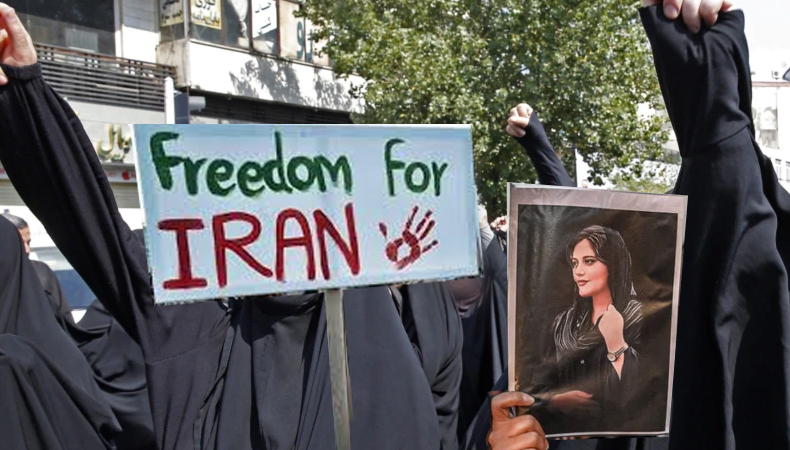Iran’s Mahsa Amini protests now have women from conservative region

Fully clad in the conservative black attire women in Sistan-Baluchistan province of Iran have now joined the civil protests across the country against the regime in Tehran.
The protests, that were sparked by death of 22 year old Mahsa Amini in custody of moral police for not wearing the hijab properly, have reached a new peak and are in no probability going to die soon. The coming forward of women from one of the most conservative regions of Iran has been hailed by the rights groups as a rare and remarkable moment.
Videos circulating online show dozens of women on the streets of province’s capital, Zahedan, holding banners that read “Woman, life, freedom” – which has become one of the main slogans of the protests in Iran that began in mid-September. “Whether with hijab or without it, onwards to revolution,” women chanted in videos that were posted on Twitter.
Read | Mourners in Iran gather at grave of Mahsa Amini despite crackdown
The widespread protests that have also gathered global recognition and support have been met with violent crackdown by the Iranian security forces, killing at least 448 people. “The ongoing protests in Iran are the beginning of a revolution of dignity,” Mahmood Amiry-Moghaddam, director of Iran Human Rights, an Oslo based non-governmental organization said. “Women and minorities, who have for more than four decades been treated as second-class citizens, are empowered through these protests to come out to the streets and demand their fundamental human rights.”
Sistan-Baluchistan is mainly a Sunni Muslim region and the poorest in Iran. The Baluch ethnicity people have always been targeted and discriminated. “Iran’s Baluchi minority face entrenched discrimination that curtails their access to education, healthcare, employment, adequate housing and political office,” Amnesty International said on Tuesday. “The Baluchi minority have borne the brunt of the vicious crackdown by security forces during the uprising that has swept across Iran since September.”




